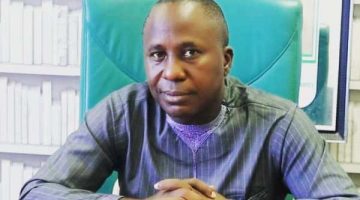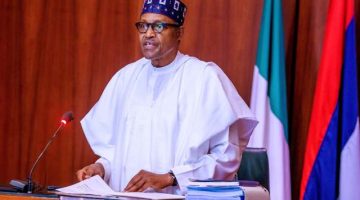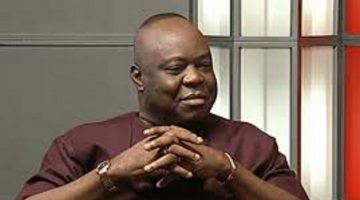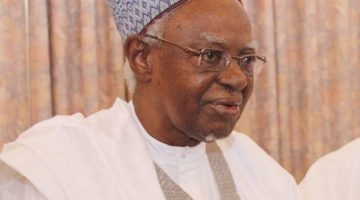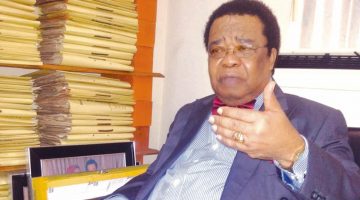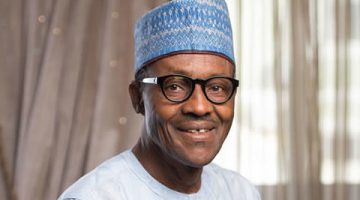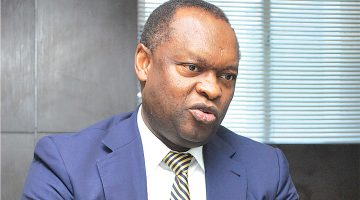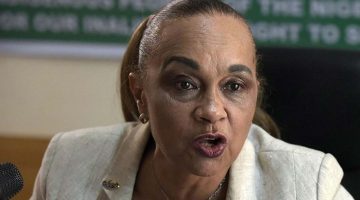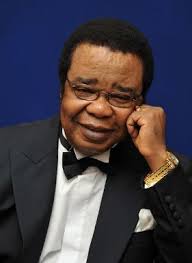
Keynote address to the national commemoration ceremony of the 40th anniversary of the creation of ECOWAS in Nigeria on the theme: “Nigeria, ECOWAS Celebrating the Economics of Unity” under the auspices of the Ministry of Foreign Affairs, Abuja, Nigeria on May 25, 2015
NO one wakes up one morning and decides to establish a multinational organisation. If even there is a spark of imagination, that a new multinational organsiation would be a good idea, it is most likely to remain just that: A spark of imagination.
The pertinent question we need to ask is what is that thing that serves or becomes a stimulus that drives the formation of a multinational organization? An excursion back into world history would provide the answer. The first example in modern history goes back to 1815 when the Congress of Vienna convened to mark the end of the 30-year Napoleonic wars that led to the formation of the concert of Europe.
The concert kept the peace in Europe for the next 100 years.
Then came the First World War, which ended with the formation of the League of Nations in 1915, which kept the European peace until the war again broke out in 1939. That war came to an end in 1945 with the founding of the United Nations. In other words, on each of those examples, it took a cataclysmic occurrence to spur the formation of each organization. Tragedy breeds inspiration to avert future occurrence. And so what was that tragedy that bred and inspired a pan-African consciousness, the oak of which ECOWAS is a shoot. The answer is obvious. That tragedy is slavery and its twin, colonialism.
The post-tribal pan-African consciousness was probably born on those Trans-Atlantic slave ships. Those slaves were forced into those ships with their tribal identities stamped in their consciousness. Somewhere during that trip, they looked at their captors and looked at themselves and a new consciousness sparked off the awareness that they had a unity of identity that set them apart from the white captors. Julius Nyerere, one of the witty seminal African leaders, was once asked, “when did the Africans discover that they were Africans rather than Zulus, or Wollof or Yoruba, or Ibo or Hausa or Ashanti?” he replied. “We looked at the colonialists and we looked at ourselves and we realized that we were Africans and they were not.”
In fact, the name of our continent, Africa, arose from another tragedy, which was the Roman conquest and occupation of Carthage in present state, Tunisia. The major group in Carthage was called the Afri. The Roman then called their colony Africa, the land of the Afri. And that is how history gave the continent its name.
Let me return to the slaveship nascent pan-tribal consciousness. It came then as no surprise that the first pan-African movements and organisations came out of the sugar plantations of the Caribbean, the West Indies and the cotton and tobacco plantations of the United States. Such names as Marcus Garvey, Edward Blyden, Henry Sylvester Williams, W.E.B. Dubois drove the idea and the movement. The first pan-African Congress was held in London in 1900, the second was held in 1921, the third in London and Lisbon in 1923 and the fourth in New York in 1927. By then, a West African nucleus has metamorphosed into a West African students union formed in 1925 and a West African national congress formed in August 1946.
It is clear that the lineage from slavery and colonialism as motivators in a symbolic sense bred this pan-African consciousness in a cascading lineage to West African consciousness. The first attempt on a governmental institutional level at concretising a West African consciousness was in 1965 when President William Tubman of Liberia originated the idea of a West African Economic Community and got Cote d’Ivoire, Guinea, and Sierra Leone to sign on. What was the motivation, especially given that the Organisation of African Unity (OAU) had been formed two years earlier in 1963.
When one talks about motivation, one is looking for the reason behind the reason. The publicly given reason is usually a rationalsiation. We must be ever mindful of the admonition by Shakespeare that “there’s no art to find the mind’s construction in the face”. The fact that the first West African coup d’etat happened in Togo, a coup allegedly promoted by Ghana, which also was having a difficult relationship with Cote d’Ivoire, might have spurred Liberia to reach out to Sierra Leone, Cote d’Ivoire, Guinea for a security alliance. Liberia and Sierra Leone were and still are small states which were never nervous of a supposedly expansionist Ghana. Guinea was having a nervous relationship with France. So, it was security threat of an existensialist nature that drove that initiative but that threat was not sufficiently grave to bring the initiative to fruition.
Then came the Gowon of Nigeria-Eyadema of Togo initiative of 1972. I am not buying the argument that Nigeria was driven by the need for access to a market larger than its population. After all, forty years after ECOWAS came into being, there is no factory in Nigeria that is producing at a capacity to satisfy its domestic population. No. I believe that what drove General Gowon was the Nigerian civil war. Not the carnage as horrendous as that was, but the highly tenuous Nigerian relationship with its neighbours which could have created existentialist problems for Nigeria if the neighbours had adopted a hostile attitude. There was a leftover issue from the civil war, which was Emeka Ojukwu, the Biafran leader taking up residence in exile in Cote d’Ivoire.
Joint membership in ECOWAS allowed reconciliation between Nigeria and Cote d’Ivoire without a loss of face on both sides. In the past 40 years, ECOWAS has achieved a lot and my intention is not to list these achievements as you are all participants in bringing these achievements into being. ECOWAS signed the protocol on relations between the African economic community and the regional economic communities in Addis Ababa, Ethiopia. In 1999, an ECOWAS summit took place in December, where the member-states agreed upon a protocol for the establishment of a mechanism for conflict prevention, management and resolution, peace and security. Mauritania withdrew from ECOWAS because of disagreements with the decisions that were made during the summit.
In 2000, ECOWAS signed the Cotonou Agreement, an agreement between the ACP group and the European community. In 2001, the Economic Community of West African States (ECOWAS) signed an agreement with the International Committee of The Red Cross (ICRC) under which both organisations agreed to cooperate in eight areas in furtherance of their common interest. In 2004, ECOWAS and the Economic and Monetary Union Of West Africa (UEMOA) signed a general cooperation agreement to enhance the coordination and harmonization of their programmes. It provides for the creation of a joint technical secretariat to enhance the coordination of their joint activities. ECOWAS on July 5, 2006 signed an agreement with the government of the Republic of Benin for the hosting of the headquarters of the West Africa Power Pool (WAPP), a specialized institution of ECOWAS for promoting the efficient exploitation and distribution of the energy resources of the region.
In 2008, ECOWAS signed a comprehensive agreement with the China Council for the Promotion of International Trade (CCPIT), an agreement that will provide the linchpin for attracting Chinese private sector investment into strategic sectors of the West African economy. In 2009, a memorandum of understanding was signed in Ouagadougou between ECOWAS and the ITC. The memorandum is designed to improve the volume of intra-community trade and thus stimulate economic development. In 2012, ECOWAS and China signed an agreement for cooperation on infrastructure development, trade and investment.
In 2013, ministers that are responsible for ECOWAS affairs in member states approved the creation of a regional investment guarantee agency with $1 billion of U.S. capital in order to help mitigate political risks associated with investments in West Africa. In 2013, ECOWAS launched a Regional Agency for Agriculture and Food (RAAF), with headquarters in Lome, Togo. In 2015, ECOWAS common external tariff went into force in January.
What I want to do now, is to bring this keynote address to a close by listing three factors that are responsible for bringing ECOWAS into being, for the success of ECOWAS and that will continue to drive ECOWAS.
The first factor is to regard ECOWAS as a product of a cascading stalactic syndrome driven from above. This syndrome manifests itself in two ways. The first is that ECOWAS is a product of those institutions that started as far back as 1900 when the first pan-African congress was held, through the West African Students Union founded in 1925, through the West African National Congress formed in 1946 and through the Organisation Of African Unity established in 1963. The second of this stalactic syndrome is the African/black consciousness that grew in a putative form on those trans-Atlantic slave ships, through its pan-African stage, now to a West African stage. Normally, we are used to the phyramidial syndrome where you build from the bottom up, with the foundation giving character to the structure.
But in the case of the stalactic syndrome, the forces driving the movement and institutions are from above and are external. To the extent that ECOWAS is a regional organization, the United Nations charter as far back as 1945 had recognized the need for development to be driven through regional institutions. Hence the United Nations itself had established the Economic Commission for Africa, one of the progenitors of the ECOWAS. As long as the United Nations, the African Union and the Economic Commission for Africa continue to set goals and targets, like the United Nations Millennium Development Goals, ECOWAS will be prodded into also setting goals.
The second factor is phrased thus: Did ECOWAS engineer West African economic integration? No. ECOWAS institutionalised and concretised the integrationist tendencies. Long before the colonial intervention, inhabitants of West Africa had traded far and wide among themselves and beyond their region. ECOWAS did not drive this process, one might even argue that this pre-colonial socio-economic network drove ecowas. ECOWAS did not create the Nigerian communities in the cocoa fields and gold mines in Cote d’Ivoire and Ashanti in Ghana. So, it is obvious that a people’s economic syndrome, driven by personal economic interests existed before ECOWAS and will continue to serve as a horizontal stimulus driving ECOWAS. As far back as 1979, I had found plastics made in Nigeria and Aswani fabrics from Nigeria being sold in markets in Kinshasa in the Democratic Republic of Congo. And as we have discovered through the xenophobic crisis in South Africa, migrations are not waiting for an African economic community before breaking down barriers.
The third factor which will drive ECOWAS towards further integration is again the tragedy of global terror. We have already seen the involvement of West African troops in Mali to confront Al-queda and we have seen the involvement of West African troops in Nigeria fighting Boko Haram. I wish I could say that this is the last ECOWAS would confront the tragedy of terrorism, whether global or national. But I am afraid that it will not be so. Global terrorism is going to be one of the defining elements of the 21st Century. The blue lining is that ECOWAS would emerge stronger from its response to this phenomenon.
Will ECOWAS lead to a West African union? The answer is yes. It will not come from public lectures or deliberate planning. It will come from ECOWAS responses to external stimulus of a cataclysmic proportion. The journey to and of ECOWAS is a perfect illustration of Brutus admonition in Shakespeare:
There is a tide in the affairs of men.
Which, taken at the flood, leads on to fortune;
Omitted, all the voyage of their life
Is bound in shallows and in miseries.
On such a full sea are we now afloat,
And we must take the current when it serves,
Or lose our ventures.
– Julius Caesar, Act 4, Scene 3, 218–224
•Professor Akinyemi, D.Phil (Oxon) CFR, FNIIA, FSSAN is a former Minister Of Foreign Affairs and Deputy Chairman, 2014 National Conference
copyright Guardian Newspaper 2015


